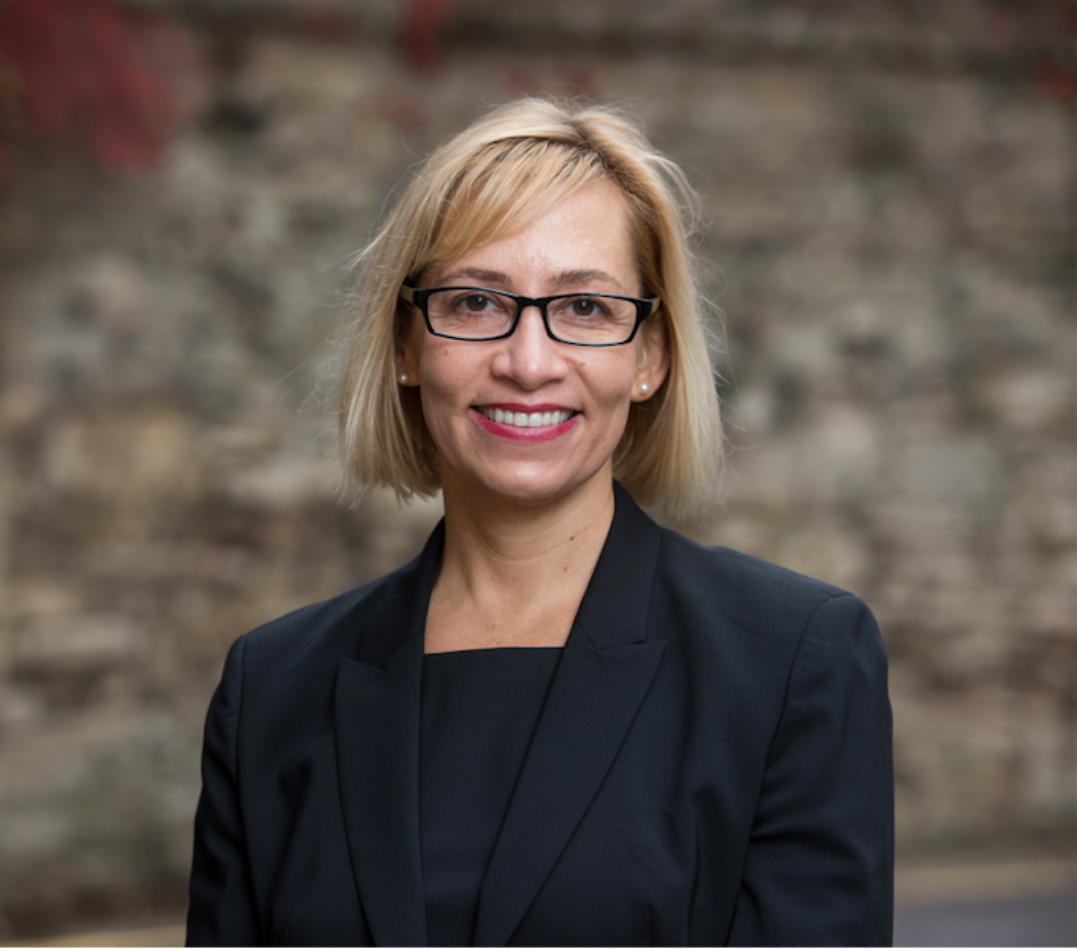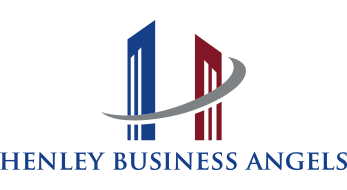08 Mar Q&A: An Interview with Henley Business Angels Member and Investor Holly Ann Baldwin

Angel investing in the UK is becoming younger and more female according to a joint study from the UKBAA and the Centre for Entrepreneurs, a positive shift after years of male dominance in the field. After almost a year as a Henley Business Angels member, we sat down with Holly Ann Baldwin to ask her about her experience so far and for any advice she could give to women looking to get into investing, as well as entrepreneurs looking to receive investment.
How did you become an investor?
I’m a medic by trade, from the US, and as I was moving into the commercial, medical device areas, I felt like I had gaps that needed addressing, so I came over to the Business School to get my MBA. My degree opened so many doors and I started to commercialise ideas with a few academics from the University of Oxford. Commercialising ideas was a great interest to me once I had finished my course and I was trying to raise money as a CEO designate; figuring out a way to take a product and sell it from inside the University. On my journey to secure funding I was introduced to Henley Business Angels and Jurek, and I pitched at one of the Presentations Events myself, which was a great introduction to the network.
A couple of years later I then moved into helping entrepreneurs commercialise their ideas. I was unfortunately unsuccessful at securing funding for my ventures, but through the value of my failure story, I was able to help others succeed. I started with some small investments, building up a portfolio, and then I attended a Henley Business Angels event and wanted to participate. I think it’s important to note too that I didn’t technically have all of the requirements on the application, which I think can be a barrier to some angels coming in. Yes, I was a previous investor and I understood what angel investing was about, but I wasn’t a director at the time. I am now, but with accessing c-suite level as a woman being challenging enough, I think that requirement further limits women as it places those additional barriers. For me, being able to have great conversations with Jurek about my previous investment experience and what areas I’m interested in even though I didn’t meet that director requirement at the time, it was a huge show of commitment to inclusion, and a reason I’m proud to be a member of the Henley Business Angels.
Have you enjoyed your time as a member of Henley Business Angels? Has the forced virtual experience of the past year matched the in-person experience?
Absolutely, I’ve really enjoyed it. Jurek has some amazing keynote speakers attend our events, and we are pitched to by some really interesting companies, but the company presentations just aren’t the same in a virtual environment, despite the incredible efforts by Jurek and Henley Business Angels to match the in-person environment in a virtual space.
One of the key take-aways you want to gauge from a founding team is that gut feeling, and sometimes that’s difficult to relay, because, as you know, about 70% of our communication is non-verbal, and so a lot of that is missed in the virtual pitch presentations. I’ve only been a member for a short period, but I miss the face-to-face because it was nice to speak with other investors and see how they decide upon their portfolio. I think one of the nice things about the programme is the ability to bounce ideas off the other angel investors, it builds a community and a sort of comradery amongst the network, so I’m really looking forward to it returning to the big auditorium in Greenlands.
Is there anything in particular you look for from companies that pitch? Anything you can advise entrepreneurs to focus on that you think is attractive?
The key thing is grit. I think you can always tell someone that is embedded, and that’s a keyword, and really serious about their programme. They have passion, they have charisma; so I think they’re the things I look for in an entrepreneur: grit, charisma, passion, and a CEO with experience in the sector. From my experience of trying to sell in the medical device arena, you really have to have industry knowledge. I wouldn’t even attempt to sell something in transportation or railway technology because it’s not my specialty, but I can sell a diabetes drug without any concerns. By investing in a company and its founding team, I put my trust in them, and I have parameters for what I think that CEO needs to bring, so I know what I’m looking for.
Have you ever taken part in syndicate investing, and if you have, how did you find it?
The stereotype is that women are more risk averse investors than men. The reality is more subtle with some research suggesting women will take higher risks for investments with high social impact. My own experience of syndicate investing is that it offers me both a degree of confidence in the risk level and the ability to direct my investment in a socially responsible way. So, in a way, it allows me to do both. This is also a good pathway to investment for entrepreneurs. I know this is slightly off topic of the question, but I think that Investment readiness is a particularly important area entrepreneurs need to focus on. A lot of entrepreneurs I work with are adamant they need to ‘raise £1 million’ without a solid plan for use of funds or if that is the number they should be asking for. Attending investment readiness workshops, which I know you at Henley Business Angels run too, will prepare them for investment conversations and they’ll be far better off as a result.
I’m still waiting for the right investment inside Henley Business Angels and it’s primarily because the first event I attended was just before lockdown one in March, and then I was only able to make one or two of the next three, which were online. So, to answer your question, I tend to invest more through a syndicate approach as it’s more fitting for me at this moment. Due diligence can take a huge amount of time, particularly if you’re the lead investor, which is why I like sharing the load in that sense.
Do you have any advice or insight for women looking to get involved with angel investing?
There’s the general advice which is to go for it, and not to let being the only woman in the room hold you back, but when you’re thinking about investing in a company ask yourself: do I believe in the founding team? Is it aligned with my area of focus or investment? Am I looking to diversify out of my areas of interest for my investments? Right now, my portfolio is primarily healthcare, but I chose to diversify and invest in this great energy product, which is a light that can distribute energy for homes that don’t have access to electricity so that they can still have light. It’s different to my focus on healthcare, but if you’re looking to diversify, ask yourself: can I add value to the company in some way? This is especially important as an angel investor, because you’re not hiding behind a big conglomerate like a corporate investor is, you’ll be attending meetings and being present. It’s also important to ask yourself ‘what is my gut saying?’. Is it saying it’s going to be a winner and that there is a market for it? All those questions are important and I would recommend considering them to anyone that’s investing.
From a womens’ perspective, I think the most important thing to remember is to not be afraid to come along. In Jurek’s case, he’s a connector, so he’s more than happy to connect you with other female business angels both in the room and in his larger network. Don’t be afraid to come along, to listen and to learn more. You don’t have to raise your hand for every investment, but make sure you don’t miss out on an investment that’s right for you. It may take some time, like I said, I haven’t found that investment yet but I know I will soon.
Men have an enormous number of role models they can look to as investors, but that’s not the case for women. Are there any female investors that you think are role models?
That’s a really good question. I went to a course a couple of years ago and they had a panel on female VCs, and the number of women at venture capital companies is just distressingly low. I tried to access that path out of school and it’s incredibly hard, so I think any female VCs, I don’t have a name in particular, but in general they are all in the trenches, they know their stuff and I think they’re probably what I would aspire to be. I would love to see more women in the VC world.
Forbes recently released the article ‘8 Female Venture Capital Investors to Watch in 2021’ if you would like to find out more about female investors in the VC world.
Is there anything else you would like to add?
I think just that I know there are some stigmas attached to business angels, with some people thinking they’re just vanity projects, but I would challenge that and say that that’s not always the case. We don’t necessarily need to be involved in all the day to day as angel investors, we’re just interested in seeing an innovative project move forward and commercialise.
I would just like to say thanks to Henley Business Angels for taking the time and picking up important issues around female entrepreneurship, women investors, and helping to bring a more diverse investing community together.


